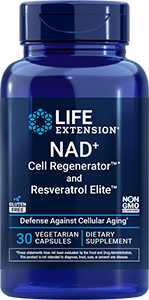
Newsletter
Newsletter
Lower Risk of Premature Mortality Found in People with Arthritis Who Consume More Omega-3 Fatty Acids

A study of men and women with osteoarthritis found a lower risk of mortality during a period of up to 14 years among those who had a high intake of omega-3 fatty acids.
Higher omega-3 consumption was associated with a lower risk of dying from all causes during follow-up. When people whose omega-3 intake was among the top 25% of those in the study were compared with individuals whose intake was among the lowest 25%, the high omega-3 group had a 49% lower adjusted risk of mortality.
In their discussion of the findings, the authors noted that omega-3 polyunsaturated fatty acids may exert their protective effects by supporting a healthy inflammatory response, acting as an antioxidant and regulating gut microbes to support gut barrier function.
“Osteoarthritis (OA) is a prevalent degenerative joint disease characterized by the deterioration of joint cartilage, leading to pain, joint dysfunction, and potential disability, thereby severely impacting patient health,” Shaoqun Huang of Fujian University of Traditional Chinese Medicine and colleagues wrote. “As of 2020, an estimated 595 million individuals across the globe are affected by osteoarthritis, representing a 132.2% increase in prevalence since 1990. In line with the rising prevalence, the mortality rate among osteoarthritis patients has also been increasing annually.”
The study included 3,467 people with osteoarthritis who participated in the U.S. National Health and Nutrition Examination Survey (NHANES) from 2005 to 2018. Dietary questionnaire responses were analyzed to determine the intake of omega-3 polyunsaturated fatty acids. The men and women were followed through December 31, 2019, and 459 deaths from all causes occurred in the study period.
The study was reported on November 8, 2024, in Scientific Reports, one of the Nature family of journals.1
Products
Apply What You’ve Learned: Omega-3 Fatty Acids
- We often hear about the negative effects of fat in our diets, but omega-3 is one kind of fat you don’t want to miss out on. Although our bodies make some fats, omega-3 polyunsaturated fatty acids must be obtained from our diets.
- The best-known omega-3 fatty acids are EPA and DHA, which occur in fish, and in smaller quantities in algae.2 Both fatty acids can be formed in the body from another omega-3 fatty acid known as ALA; however, this process may not result in optimal levels of EPA and DHA.
- Omega-3 fatty acids are among a small number of nutrients for which the US Food and Drug Administration (FDA) permits claims to be made, including, “Supportive but not conclusive research shows that consumption of EPA and DHA omega-3 fatty acids may reduce the risk of coronary heart disease.”
- How much omega-3 can we safely take? The European Food Safety Authority has stated that consuming up to 5 grams of EPA and DHA combined appears to be safe long term, a position also taken by the FDA.3,4 Blood tests that measure omega-3 levels can help guide the amount needed.
References
- Huang S et al. Sci Rep. 2024 Nov 3;14(1):26516. 2.
- National Institutes of Health Office of Dietary Supplements. Omega-3 Fatty Acids. National Institutes of Health. 2023 Feb 15. https://ods.od.nih.gov/factsheets/Omega3FattyAcids-HealthProfessional/
- EFSA Panel on Dietetic Products, Nutrition and Allergies (NDA). Scientific Opinion on the Tolerable Upper Intake Level of eicosapentaenoic acid (EPA), docosahexaenoic acid (DHA) and docosapentaenoic acid (DPA). EFSA J. 2015;10(7). https://www.efsa.europa.eu/en/efsajournal/pub/2815
- Balentine D. Petition for a Health Claim for Eicosapentaenoic Acid and Docosahexaenoic Acid and Reduction of Blood Pressure in the General Population (Docket No. FDA-2014-Q-1146). Center for Food Safety and Applied Nutrition. Page 9. https://www.fda.gov/media/128043/
Featured Life Extension Magazine® Article
Effects of Mushrooms on Immune Functions
By Heather L. Makar
Mushrooms contain compounds known as beta-glucans that support immune functions. Shiitake, maitake and chaga mushrooms have strong immune-supportive effects that may help protect against and reduce the severity and duration of colds and flu.
Recent studies suggest that mushrooms may protect against more than upper respiratory illnesses. A meta-analysis of five studies that included a total of 601,893 men and women revealed that people who ate mushrooms had a 6% lower risk of mortality from all causes during the studies’ follow-up periods. Another meta-analysis found that individuals who consumed the most mushrooms had a 34% lower risk of cancer compared with those who consumed the least.
Read Full Article
What's Hot
Health Concern
Adding Omega-3 to the Diet Associated with Lower Risk of Mortality During Up to Seven Years of Follow-Up
The February 7, 2024, issue of Food & Function published findings from a systematic review and meta-analysis that adds evidence to an association between omega-3 polyunsaturated fatty acid intake and a lower risk of mortality during follow-up among people with atherosclerotic cardiovascular disease.

Arthritis - Osteoarthritis
Natural compounds like krill oil and Boswellia serrata target inflammatory pathways that can contribute to pain, swelling and joint degradation.
Related Life Extension Magazine® Articles

Life-Expectancy Impact of Fish Oil
Higher omega-3 levels correlate with greater human longevity. Flavored, chewable, fish oil gummies make it easy to obtain.

Plant Compounds that Reduce Joint Cartilage Loss
Osteoarthritis drugs do not prevent cartilage degeneration. Three botanical extracts can help repair joint damage and reduce cartilage loss.
Highlight
Free Personalized Health Advice from Our Experts
When it comes to your well-being, there are no one-size-fits-all solutions. That’s why we offer FREE 1:1 sessions with our Wellness Specialists. Our team of health and nutrition experts is ready to answer all your health-related questions, 7 days a week, 365 days a year.
Learn MoreLife Extension Magazine® Issue Now Online
A remarkable number of healthy-longevity findings have been published over the past 18 months.
The latest news on aging, nutrition, and vitamins
Health News
Magtein® is a trademark of Magceutics®, Inc. and is distributed exclusively by AIDP, Inc. Magtein® is protected under a family of US patents, pending patents, and is protected worldwide.




